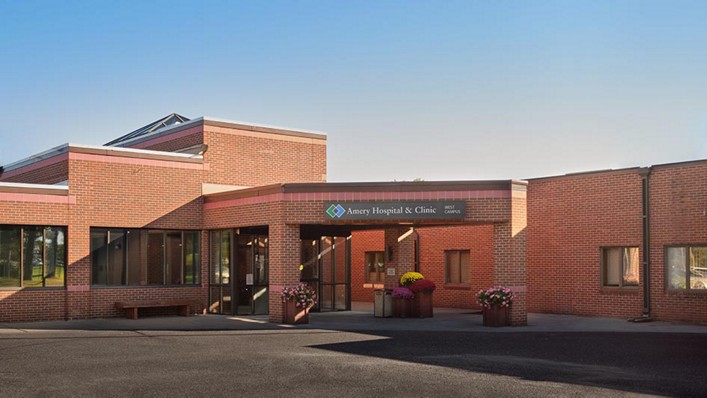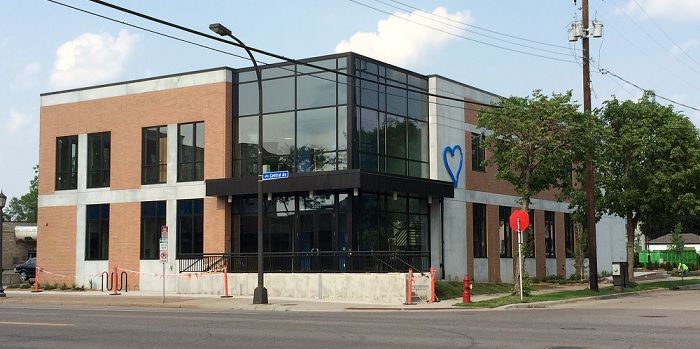
The journey to lasting wellness is often fraught with challenges, especially when navigating the complexities of substance use disorders and mental health concerns. It’s a path that requires not just individual willpower, but also robust support systems and evidence-based treatment programs. Finding the right resources can feel overwhelming, leaving many unsure where to turn for effective help. The desire for a fresh start, a chance to reclaim control and build a healthier future, is a powerful motivator.
Imagine a community where comprehensive and compassionate care is readily available, where individuals are empowered to overcome obstacles and thrive. This vision fuels the ongoing efforts to expand and enhance access to quality treatment services. The need is undeniable, and the commitment to providing accessible and effective programs is unwavering. Many are looking for help, and it’s encouraging to know that many organizations are dedicated to providing support in Amery, Wisconsin.
Many are searching for rehabilitation options, it is very important to consider what the programs offer. The hope is to find programs that address the physical, psychological, and social aspects of addiction and mental health issues. The goal is not just to treat the symptoms, but to help individuals develop coping mechanisms, build resilience, and create fulfilling lives free from the grip of addiction.
For those seeking comprehensive and accredited rehabilitation services in Amery, WI, understanding the available options is key to finding the right fit for individual needs. There are a number of resources to consider. It is extremely important to consider a number of factors when choosing a health partner and rehabilitation program.
This leads us to exploring the landscape of resources in Amery, Wisconsin and discussing programs that aim to provide individuals with the tools and support needed to achieve lasting recovery and well-being. The aim is to give individuals a better understanding of what is available to them. The following information will give readers a better understanding of HealthPartners Programs for Change Amery – accreditedrehabs.
Understanding the Need for Accredited Rehabs
The Importance of Accreditation
Accreditation in the realm of rehabilitation centers signifies a commitment to quality and adherence to established standards of care. These standards are often set by independent organizations that rigorously evaluate a facility’s programs, staff qualifications, safety protocols, and overall effectiveness. Choosing an accredited rehab provides assurance that the center meets specific benchmarks for providing evidence-based treatment and a safe, supportive environment.
The process of accreditation is not a simple rubber stamp. Facilities undergo thorough inspections and must demonstrate that they are continuously working to improve their services. This commitment to ongoing improvement is crucial for ensuring that clients receive the best possible care and have the highest chances of achieving lasting recovery.
Without accreditation, it can be difficult to assess the true quality of a rehabilitation program. Accreditation provides a valuable layer of protection for individuals seeking help, ensuring that they are not taken advantage of by unscrupulous or ineffective programs. It is a sign that the facility is dedicated to providing ethical and effective care.
Moreover, accreditation can be a prerequisite for insurance coverage. Many insurance providers will only reimburse for treatment received at accredited facilities, as it provides assurance that the care being provided meets their standards for medical necessity and effectiveness.
Therefore, when researching rehabilitation options, it’s essential to prioritize accredited facilities. This simple step can significantly increase the likelihood of a positive and successful recovery experience. Accreditation ensures a higher standard of care and ethical practice.
Challenges in Finding Accredited Rehabs
Despite the importance of accreditation, locating accredited rehabs can sometimes present challenges. The sheer volume of information available online can be overwhelming, and it’s not always easy to discern which facilities are truly accredited and which are not. Some facilities may falsely claim accreditation, or may have accreditation from organizations that are not recognized or reputable.
Another challenge is the lack of awareness among the general public about the importance of accreditation. Many individuals seeking treatment may not even know to look for this credential, and may inadvertently choose non-accredited facilities.
Furthermore, the process of verifying accreditation can be time-consuming and complicated. It often requires contacting the accrediting organization directly or searching through online databases, which can be daunting for individuals already dealing with the stress of addiction or mental health issues.
Financial barriers can also limit access to accredited rehabs. Accredited facilities may be more expensive than non-accredited facilities, which can make them unaffordable for some individuals, even with insurance coverage.
Navigating these challenges requires diligence, careful research, and a willingness to ask questions. It’s essential to verify the accreditation status of any facility being considered, and to understand the specific requirements and standards associated with that accreditation.
HealthPartners’ Role in Promoting Quality Care
HealthPartners, as a healthcare provider and insurer, plays a vital role in promoting quality care within the communities it serves. One way they do this is by contracting with accredited facilities and encouraging their members to seek treatment at these centers.
HealthPartners also works to educate its members about the importance of accreditation and provides resources to help them find accredited providers. This includes providing online directories of accredited facilities and offering support from case managers who can assist with navigating the treatment landscape.
Through its advocacy efforts, HealthPartners also encourages other healthcare organizations and policymakers to prioritize accreditation and to implement policies that support the growth of high-quality treatment services.
HealthPartners is committed to ensuring that its members have access to the best possible care, and accreditation is a key component of that commitment. By promoting accreditation, HealthPartners helps to protect its members from substandard care and to ensure that they receive effective treatment that meets their needs.
HealthPartners invests time and effort in assessing and continually reviewing and evaluating facilities that it works with. This helps to ensure that they only partner with reputable and accredited facilities.
Focusing on HealthPartners Programs for Change Amery
Overview of Available Programs
When exploring HealthPartners Programs for Change Amery – accreditedrehabs, it’s essential to understand the specific programs offered. These programs may include outpatient therapy, intensive outpatient programs (IOPs), residential treatment, and medication-assisted treatment (MAT). Each program caters to different levels of need and severity of addiction or mental health concerns.
Outpatient therapy typically involves individual or group counseling sessions that take place on a regular basis. This option is best suited for individuals with mild to moderate symptoms who are able to maintain their daily routines while receiving treatment.
IOPs provide a more intensive level of care, with clients attending multiple therapy sessions per week. IOPs are often a good option for individuals who need more support than outpatient therapy can provide, but who are not ready for or do not require residential treatment.
Residential treatment involves living at a rehabilitation facility for a period of time, typically ranging from 30 to 90 days. This option is best suited for individuals with severe addiction or mental health concerns who require round-the-clock support and supervision.
MAT involves the use of medications to reduce cravings and withdrawal symptoms associated with addiction. MAT is often used in conjunction with therapy and other support services to provide a comprehensive approach to treatment.
The Accreditation Status of HealthPartners Programs for Change
Confirming the accreditation status of HealthPartners Programs for Change Amery – accreditedrehabs is crucial. Accreditation ensures that the program meets specific standards of quality and safety. Check with the accrediting body, such as The Joint Commission or CARF International, to verify the program’s accreditation status.
Accreditation typically covers various aspects of the program, including its policies, procedures, staff qualifications, and treatment methods. It provides assurance that the program is committed to providing evidence-based care and maintaining a safe and supportive environment for its clients.
When researching HealthPartners Programs for Change, inquire about the specific accreditations held by the program. This information is usually readily available on the program’s website or by contacting the program directly.
It is important to ask about any recent changes or updates to the program’s accreditation status. Accreditations are typically renewed periodically, and it’s important to ensure that the program’s accreditation is current and valid.
Understanding the accreditation status of HealthPartners Programs for Change will give a clear indicator of the legitimacy of their processes. Look for facilities that are transparent about their processes and documentation.
Treatment Approaches and Philosophies
Effective rehabilitation programs utilize a variety of evidence-based treatment approaches tailored to meet the individual needs of each client. These approaches may include cognitive behavioral therapy (CBT), dialectical behavior therapy (DBT), motivational interviewing (MI), and family therapy.
CBT helps clients identify and change negative thought patterns and behaviors that contribute to their addiction or mental health concerns. DBT teaches clients skills for managing emotions, improving relationships, and tolerating distress.
MI is a client-centered approach that helps individuals explore their ambivalence about change and develop intrinsic motivation to make positive changes. Family therapy involves working with the client and their family members to address issues that may be contributing to the client’s challenges and to improve communication and relationships.
The treatment philosophy of a rehabilitation program should also align with the individual’s values and goals. Some programs may emphasize a spiritual approach, while others may focus on a more secular approach. It’s important to find a program whose philosophy resonates with the client.
When researching HealthPartners Programs for Change, inquire about the specific treatment approaches and philosophies used by the program. Understand how these approaches can benefit individuals seeking rehabilitation in Amery.
Navigating Insurance Coverage for Rehab Programs
Understanding Your HealthPartners Plan
Navigating insurance coverage for rehabilitation programs can be a complex process. The first step is to thoroughly understand your HealthPartners plan and its specific coverage for mental health and substance use treatment. Review your policy documents carefully, paying attention to the following:
Deductibles: The amount you must pay out-of-pocket before your insurance coverage kicks in.
Co-pays: The fixed amount you pay for each visit to a healthcare provider or for each service you receive.
Co-insurance: The percentage of the cost of care that you are responsible for paying after your deductible has been met.
Out-of-pocket maximum: The maximum amount you will pay out-of-pocket for covered healthcare expenses during the plan year.
It’s also important to understand whether your plan requires you to use in-network providers or whether you have the option to see out-of-network providers. In-network providers have contracted with HealthPartners to provide services at a negotiated rate, while out-of-network providers may charge higher rates.
HealthPartners typically provides a provider directory that lists all of the in-network providers in your area. You can also contact HealthPartners directly to inquire about specific providers or facilities.
Familiarizing yourself with your HealthPartners plan will make it easier to navigate the coverage process and avoid unexpected costs. Make sure to keep a copy of your plan documents handy.
Pre-Authorization and Medical Necessity
Many insurance plans require pre-authorization for certain types of treatment, including rehabilitation programs. Pre-authorization means that you must obtain approval from HealthPartners before receiving treatment in order for the treatment to be covered.
To obtain pre-authorization, your healthcare provider will typically need to submit a request to HealthPartners that includes information about your diagnosis, treatment plan, and the medical necessity of the treatment. HealthPartners will then review the request and determine whether to approve it.
Medical necessity refers to the requirement that the treatment be deemed necessary to treat your medical condition. HealthPartners will typically consider factors such as the severity of your symptoms, your history of treatment, and the potential benefits of the treatment when determining medical necessity.
It’s important to work closely with your healthcare provider to ensure that they submit all of the necessary documentation to HealthPartners in a timely manner. Failure to obtain pre-authorization when required may result in your claim being denied.
The best practice is to always check with HealthPartners before starting any treatment program to determine if pre-authorization is required. This will help to avoid any unwanted surprises.
Appealing Denied Claims
If your claim for rehabilitation treatment is denied by HealthPartners, you have the right to appeal the decision. The appeals process typically involves submitting a written request to HealthPartners that explains why you believe the denial was incorrect.
You may also need to provide additional documentation to support your appeal, such as letters from your healthcare provider, medical records, or other relevant information. HealthPartners will then review your appeal and make a final decision.
If your appeal is denied by HealthPartners, you may have the option to pursue further levels of appeal, such as an external review by an independent organization. The specific procedures for appealing a denied claim will be outlined in your HealthPartners policy documents.
It’s important to act quickly if your claim is denied, as there are typically deadlines for filing appeals. Seek assistance from a healthcare advocate or attorney if you need help navigating the appeals process.
Document everything. Keeping detailed records of all communications with HealthPartners, including dates, times, and the names of the people you spoke with, can be extremely useful if you need to file an appeal.
Support Systems and Aftercare Planning
The Importance of Support Networks
Recovery from addiction or mental health issues is rarely a solitary journey. Strong support networks play a crucial role in helping individuals maintain their progress and prevent relapse. These networks can include family members, friends, support groups, and therapists.
Family members can provide emotional support, encouragement, and practical assistance, such as transportation to therapy appointments or help with childcare. Friends can offer companionship and a sense of belonging, which can help to combat feelings of isolation.
Support groups, such as Alcoholics Anonymous (AA) or Narcotics Anonymous (NA), provide a safe and supportive environment where individuals can share their experiences, learn from others, and receive encouragement from peers who understand what they are going through.
Therapists can provide professional guidance and support, helping individuals to develop coping mechanisms, manage stress, and address underlying issues that may be contributing to their addiction or mental health concerns.
Building and maintaining strong support networks requires effort and commitment. It’s important to be open and honest with the people in your support network, and to be willing to ask for help when you need it.
Developing a Comprehensive Aftercare Plan
Aftercare planning is an essential component of successful rehabilitation. An aftercare plan is a detailed plan that outlines the steps you will take to maintain your recovery after you leave a rehabilitation facility.
A comprehensive aftercare plan should include the following elements:
Ongoing therapy: Continuing to attend therapy sessions after you leave rehab can help you to maintain your progress and address any challenges that may arise.
Support group meetings: Attending support group meetings regularly can provide ongoing support and encouragement.
Medication management: If you are taking medication to manage your addiction or mental health concerns, it’s important to follow your doctor’s instructions carefully and to attend regular check-ups.
Relapse prevention strategies: Develop a plan for how you will cope with cravings, triggers, and other situations that could lead to relapse.
Lifestyle changes: Make changes to your lifestyle that will support your recovery, such as eating a healthy diet, exercising regularly, and getting enough sleep.
Work closely with your therapist and other members of your treatment team to develop an aftercare plan that is tailored to your individual needs and goals. It’s important to be realistic about what you can realistically achieve, and to be willing to adjust your plan as needed.
Having a well-defined aftercare plan in place can significantly increase your chances of maintaining long-term recovery. Aftercare planning gives individuals the chance to create a detailed plan to continue their progress.
Consider attending outpatient sessions in the HealthPartners Programs for Change Amery to further your development. These can provide a good bridge for you to continue working on your aftercare plan.
Relapse Prevention Strategies
Relapse is a common occurrence in the recovery process, but it is not inevitable. By developing and implementing effective relapse prevention strategies, you can significantly reduce your risk of relapse.
Some common relapse prevention strategies include:
Identifying triggers: Identifying the people, places, and situations that trigger your cravings or negative emotions.
Developing coping mechanisms: Learning healthy ways to cope with stress, anxiety, and other emotions that could lead to relapse.
Avoiding triggers: Avoiding the people, places, and situations that trigger your cravings.
Building a strong support network: Connecting with supportive people who can help you to stay on track.
Attending support group meetings: Attending support group meetings regularly for ongoing support and encouragement.
Practicing self-care: Taking care of your physical and emotional health by eating a healthy diet, exercising regularly, and getting enough sleep.
It’s important to remember that relapse is a sign that you need to make adjustments to your recovery plan. Don’t be discouraged if you experience a relapse. Instead, learn from the experience and use it as an opportunity to strengthen your recovery.
Engage in self-monitoring. Keeping a journal can help you track your thoughts, feelings, and behaviors, which can help you identify early warning signs of relapse.
Develop a “relapse contract”. This is a written agreement between you and a trusted friend or family member that outlines what you will do if you experience a relapse. This can help you to take action quickly and get the help you need.
The Amery, WI Community and Recovery Resources
Local Support Groups and Organizations
The Amery, WI community offers a variety of support groups and organizations dedicated to helping individuals struggling with addiction and mental health concerns. These resources can provide valuable support, education, and connections to treatment services.
Some local support groups may include:
Alcoholics Anonymous (AA): A worldwide fellowship of men and women who share their experience, strength, and hope with each other that they may solve their common problem and help others to recover from alcoholism.
Narcotics Anonymous (NA): A nonprofit fellowship or society of men and women for whom drugs had become a major problem. NA is a global, community-based organization with a multilingual and multicultural membership.
Al-Anon/Alateen: A fellowship of relatives and friends of alcoholics who share their experience, strength, and hope in order to solve their common problems. Alateen is for younger family members of alcoholics.
Local organizations may also offer services such as:
Mental health counseling: Providing individual, group, and family therapy to address mental health concerns.
Substance abuse treatment: Offering outpatient and intensive outpatient programs for individuals struggling with addiction.
Crisis intervention: Providing immediate support to individuals in crisis.
Educational programs: Offering workshops and seminars on topics related to mental health and addiction.
Connecting with local support groups and organizations can provide a sense of community and belonging, which can be especially important for individuals who are new to recovery. Support groups and resources will make any individual feel more connected.
Reach out to the Polk County Health Department for a list of local resources. They often have the most updated information on services in the area.
Community Events and Awareness Campaigns
The Amery, WI community also hosts a variety of events and awareness campaigns aimed at promoting mental health and reducing the stigma associated with addiction. These events can provide opportunities to learn more about mental health and addiction, connect with others, and show your support for those who are struggling.
Some common community events may include:
Mental health awareness walks/runs: Events that raise awareness about mental health and raise funds for mental health organizations.
Addiction recovery celebrations: Events that celebrate the successes of individuals in recovery and raise awareness about addiction.
Educational seminars: Workshops and seminars that provide information about mental health, addiction, and treatment services.
Community forums: Public meetings where community members can discuss issues related to mental health and addiction.
Participating in community events and awareness campaigns can help to create a more supportive and understanding community for individuals struggling with mental health and addiction.
Being involved provides a better understanding of the work that goes into maintaining mental well-being.
Volunteering at a local mental health organization or addiction treatment center is a great way to give back to the community and make a difference in the lives of others.
Many organizations appreciate and use volunteer help to accomplish their objectives.
Spread the word about the resources in the Amery area. The more people know about what is available, the more accessible these resources will be.
Overcoming Stigma and Promoting Understanding
Stigma is a major barrier to seeking help for mental health and addiction issues. Stigma refers to the negative attitudes and beliefs that are associated with mental health and addiction. Stigma can lead to discrimination, social isolation, and feelings of shame and embarrassment.
Overcoming stigma requires a multi-pronged approach that includes:
Education: Providing accurate information about mental health and addiction to dispel myths and misconceptions.
Personal stories: Sharing personal stories of recovery to humanize the experience of mental health and addiction.
Advocacy: Advocating for policies and practices that support individuals with mental health and addiction issues.
Community engagement: Engaging community members in conversations about mental health and addiction to promote understanding and empathy.
By working together to overcome stigma, we can create a more welcoming and supportive community for individuals struggling with mental health and addiction.
The more understanding and acceptance there is, the more likely people will seek help.
Challenge negative stereotypes about mental health and addiction whenever you hear them. Speaking up against discrimination and prejudice can make a big difference.
Practice empathy. Try to put yourself in the shoes of someone who is struggling with mental health or addiction.
Encourage open and honest conversations about mental health and addiction. The more we talk about these issues, the less stigma there will be.
Making Informed Decisions About Rehab Options
Questions to Ask Potential Programs
Choosing the right rehabilitation program is a significant decision. To make an informed choice, it’s crucial to ask potential programs specific questions that address your individual needs and concerns.
Here are some key questions to consider:
Is the program accredited? If so, by what organization?
What types of treatment approaches are used?
What are the qualifications of the staff?
What is the average length of stay?
What is the cost of the program?
What is the program’s success rate?
What is the program’s aftercare plan?
Does the program offer family therapy or support groups?
What is the program’s policy on medication-assisted treatment?
What is the program’s philosophy on relapse prevention?
Don’t be afraid to ask as many questions as you need to feel comfortable with your decision. The more information you have, the better equipped you will be to choose a program that is right for you.
Consider touring the facility. This will give you a chance to see the environment firsthand and meet some of the staff.
Read online reviews of the program. This can give you valuable insights from past clients and their families.
Assessing Individual Needs and Preferences
The best rehabilitation program for you will depend on your individual needs and preferences. Consider the following factors when assessing your needs:
Severity of addiction or mental health concerns: Do you need intensive inpatient treatment or can you benefit from outpatient therapy?
Personal preferences: Do you prefer a spiritual or secular approach to treatment? Do you prefer individual or group therapy?
Financial resources: Can you afford private treatment or do you need to rely on insurance coverage?
Location: Do you prefer to stay close to home or do you want to travel to a different location for treatment?
Co-occurring disorders: Do you have any other mental health conditions that need to be addressed?
It is also good to consider potential triggers that might arise with locations and other conditions. It is also important to take into account anything that might cause anxiety.
Create a list of priorities. What are the most important factors for you in a rehabilitation program?
Talk to your doctor or therapist. They can help you assess your needs and make recommendations for treatment.
Seek input from family and friends. They can provide valuable support and perspective.
Making a Decision and Taking Action
Once you have gathered all of the necessary information and assessed your individual needs, it’s time to make a decision and take action. Choose a rehabilitation program that you feel confident will meet your needs and help you achieve your recovery goals.
Contact the program to schedule an intake appointment. Be prepared to provide information about your medical history, substance use history, and mental health history.
Arrange for transportation to and from the facility. If you are entering inpatient treatment, pack your bags and prepare to focus on your recovery.
Inform your employer and family members about your decision to seek treatment. This will help them to understand your needs and provide support during your recovery.
Remember that seeking treatment is a sign of strength, not weakness. You are taking a courageous step towards a healthier and happier future.
Conclusion
Navigating the world of HealthPartners Programs for Change Amery – accreditedrehabs can be a complex but ultimately rewarding process. By understanding the importance of accreditation, exploring available programs, and considering individual needs, individuals can make informed decisions that pave the way for lasting recovery. This article aims to provide insight on available rehabilitation programs.
This article offers a comprehensive overview of the available options, enabling individuals to make informed decisions. By understanding the importance of accreditation, exploring program details, and navigating insurance coverage, individuals can take control of their recovery journey. There are many important aspects to consider when choosing a rehabilitation program.
Remember that recovery is a journey, and it’s essential to find the resources and support that are right for you. The focus on accredited facilities ensures a commitment to quality care. It’s important to consider many different factors when choosing health programs.
It is important to consider the after-care plan and support systems that are available in the Amery area. There are some great resources available to help individuals on their recovery journey. HealthPartners Programs for Change Amery – accreditedrehabs is dedicated to helping all.
Hopefully this article provided some insight and information. Please check out our other articles for additional information.



